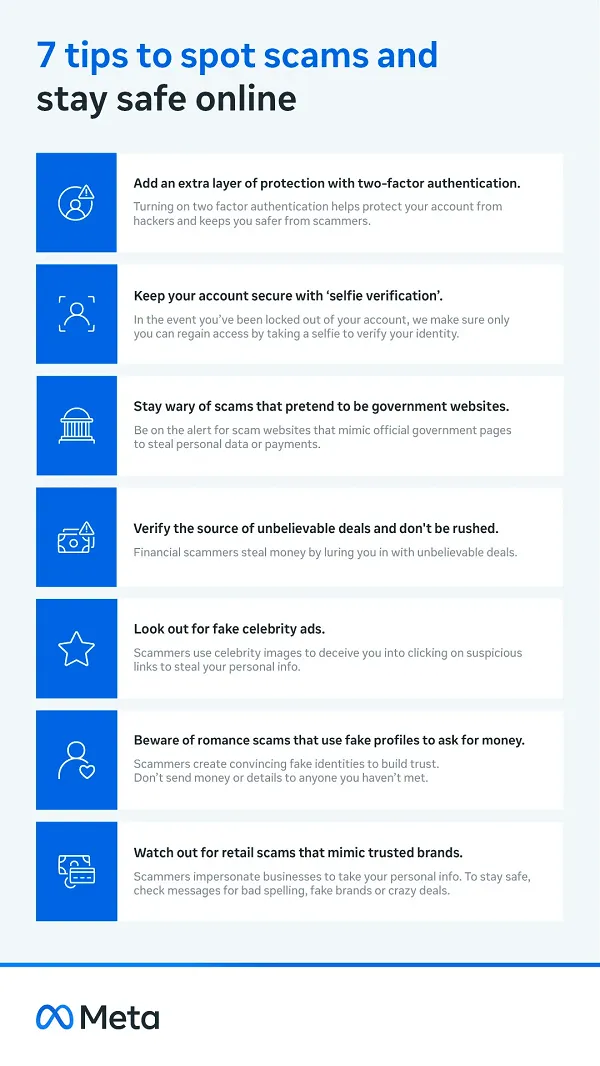Meta has provided some new insights into its ongoing efforts to protect users from scams, while it’s also shared some tips on what to look out for to avoid scam activity, and in particular, “pig butchering”, which has become a bigger problem in recent years.
What’s “pig butchering” you might ask?
As explained by Meta:
“One of the most egregious and sophisticated fraud scams, ‘pig butchering’ is all about building trusted personal relationships online with someone only to manipulate them to deposit more and more money into an investment scheme, often using cryptocurrency, and ultimately lose that money.”
So it’s (mostly) romance scams, in which the scammers target lonely people with offers of love and adventure, only to then clean out their bank accounts once they gain their trust.
It’s pretty horrible, especially given that it targets vulnerable people, and eventually compounds their loneliness by screwing them over. And as such, Meta’s taking action to stop it, with the company removing over two million accounts linked to scam centers, mostly originating from Asia, throughout this year.
“For over two years, our teams have been focused on investigating and disrupting the activities of the criminal scam centers in Southeast Asia. While our initial focus was on scam centers in Cambodia, we have since worked to keep pace with the expansion of these groups as they began to appear in places like Laos, Myanmar and more recently the United Arab Emirates. At the outset, we actively engaged with expert NGOs and law enforcement partners in the US and Southeast Asia to better understand the modus operandi of these criminal groups, including in places like Sihanoukville in Cambodia, which is reported to be a hotbed for Chinese organized crime-linked scams.”
Meta says that it’s actively working with law enforcement to help catch out and punish these groups, while it’s also sharing information with industry peers to expand its detection systems.
But users can also protect themselves by being aware of what to watch for, and on that front, Meta has provided seven tips.

These measures and notes will help you to protect yourself from scam activity, but the baseline security you need is two-factor authentication, while you should always be wary of any links that you click. Checking the details of email addresses, and clarifying URLs by hovering on links can be easy ways to detect errors or inconsistencies that point to scams, and being vigilant will help to ensure you don’t fall victim to them.
Some handy tips, which everyone who’s active online should be aware of.
You can read more about Meta’s scam detection efforts here.


Recent Comments